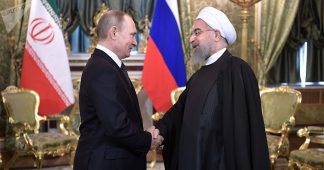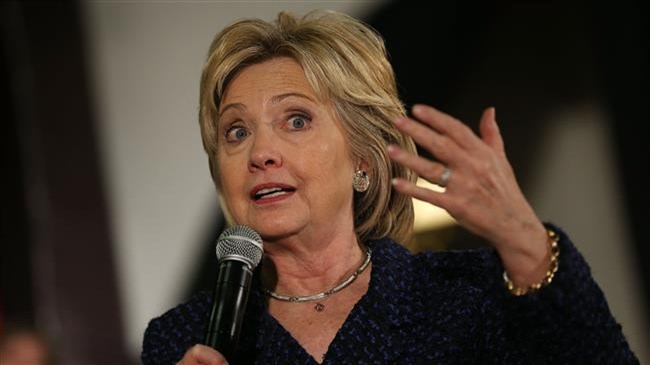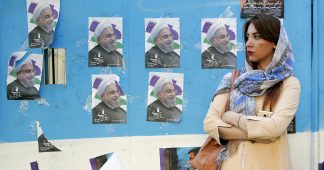By Bonnie Kristian
July20. 2015
In late 2012, a handful of mostly non-American news outlets covered the death of Manouchehr Esmaili-Liousi, a 15-year-old Iranian boy from a nomadic tribe in the southern region of the country. Manouchehr suffered from hemophilia, a blood disorder which, when left untreated, can result in patients bleeding to death because their blood simply will not clot.
The boy would have been able to manage his disease with access to the right medicines. But some 75 percent of hemophilia drugs are manufactured in the United States and the United Kingdom. And thanks to Western sanctions on Iran, the medicine Manouchehr needed to stay alive was not available in his country.
His death is a single documented example of a much bigger, but underreported, problem: The American-led sanctions program against Iran, which dates to 1979 and includes a wide range of prohibitions, has significantly reduced the average Iranian’s quality of life. Western policies have resulted in shortages and high prices for key commodities like food, fuel, and, yes, medicine and medical equipment.
“Because of sanctions, we’re extremely worried for the health of our patients suffering from hemophilia,” said Ahmad Ghavidel, managing director of Iran’s Hemophilia Center, when he announced Manouchehr’s death three years ago. He added: “When the West bans the world’s banks from completing transactions with our banks, imports of medicine will suffer from serious disruptions.”
Hemophilia patients like Manouchehr are hardly the only ones affected: Drugs for cancer, tetanus, multiple sclerosis, and blood disorders like thalassaemia are also in short supply, as are treatment options for patients with kidney problems that require dialysis. Fatemeh Hashemi of Iran’s Charity Foundation for Special Diseases argues this is “all because of sanctions against banks or problems with transferring foreign currency.” Though some research has suggested the Iranian government is also partially to blame, it is clear that Western sanctions are the primary culprit.
President Obama has all but boasted that American sanctions “crippled the Iranian economy.” What he fails to mention is which Iranians have borne the brunt of our economic attack. As Sheldon Richman argues at Reason, what has been crippled is not some abstract economy but “the lives of innocent Iranians, who have had a difficult time obtaining food and medicines. The sanctions regime is a form of warfare against noncombatants.”
Indeed, far from targeting the political elite, our sanctions have made life worse for Iran’s poor and middle class. Iranian-American filmmaker Beheshteh Farshneshani explained in The New York Times in 2013:
In Iran the impact of sanctions has been devastating. Over the last year and a half, families living in poverty rose from 22 percent to more than 40 percent, [Iran’s currency] the Rial plummeted at least 40 percent, and the price of food regularly consumed by Iranians — for example, milk, tea, fruits, and vegetables — skyrocketed. Moreover, the health of millions of Iranians has been compromised due to the shortage of western medical drugs and supplies. Asian replacements have proved ineffective and often result in severe side effects. [The New York Times]
These sanctions never magically produced a democratic Iranian government eager to comply with Washington’s every request and respect its citizens’ every right. This ought not surprise us: By one estimate, only 4 percent of sanctions achieve their desired result, while most merely impose “significant human costs on the populations of target states, including on innocent civilians who have little influence on their government’s behavior.”
This is why the announcement of a completed nuclear deal, which lifts these punishing sanctions in exchange for Tehran curtailing its nuclear program, has Iranians literally celebrating in the streets, dancing, and snapping selfies. “For ages now sanctions have really had an effect, hopefully the lifting of them will have a positive impact on people’s lives,” said one Iranian woman.
We in the United States should share the same hope. This deal presents a way to keep Iranian kids like Manouchehr from dying of treatable diseases, while making daily life easier and more affordable for all Iranians. So while there is undoubtedly plenty of room for disagreement on the merits of the Iran deal, the prospect of removing sanctions that are hurting innocent civilians is cause for joy.
In 1996, former Secretary of State Madeleine Albright infamously said the death of 500,000 children in Iraq because of U.N. sanctions was “worth it.” In 2015, we may have the chance to more humanely say a deal is “worth it” to avoid repeating that tragic mistake.
Also Read
How US killed 500,000 Babies in Iraq before 9/11











